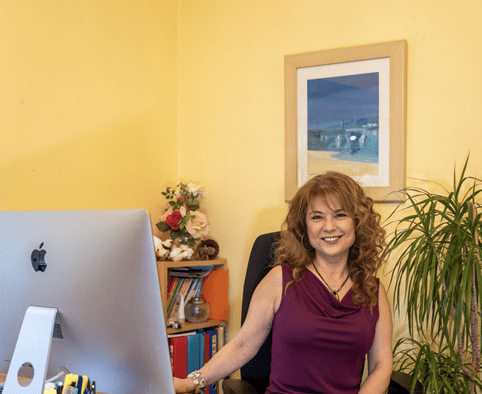
Adrianna Rutczynska: From Gearshifts to Genomes — The Drive Behind a Quality Production Technician’s Biotech Breakthrough
Embarking on a transformative career journey, the subject of this article transitioned from logistics and production to a pivotal role as a Quality Production Technician in the sequencing technology field. This strategic move was catalysed by an offer from a work agency in 2020, which, despite initial hesitations due to its temporary nature, led to a significant career shift from the automotive industry to biotechnology. The skills honed in automotive production—such as standard implementation, efficiency, and problem-solving—proved invaluable in the new role, where meticulous attention to detail and independent thinking are paramount. The article delves into the practical application of these transferable skills, the challenges of adapting to a different industry’s pace, and the personal growth experienced through this career transition. It also explores the subject’s approach to maintaining accuracy in DNA analysis, the importance of adaptability, and the insights gained from addressing non-conformances in product quality.
Can you share your journey from working in logistics and production to becoming a Quality Production Technician in the sequencing technology field? How did your previous experiences contribute to your current role?
In 2020, I was approached by a work agency with an offer via email. Concerned about whether the position was the right fit for me, as the contract submitted by the agency stated only three months with a possibility of extension, I was hesitant to leave my stable job for something new and uncertain. Despite being intrigued by the description of responsibilities, I did not immediately contact the agency due to the perceived risk. While working in the automotive industry, shifts were the only option available. Although I enjoyed the work greatly, I knew I needed to change my hours to start my studies, so I was preparing to seek another job. After analyzing the offer and researching the company, I decided to respond. Following several interviews, I began my new job in biotechnology, determined to learn everything thoroughly and excel.

Today, I enjoy the transition from line production to the laboratory in the biotechnology field. The company’s goals were fascinating and differed greatly from the automotive sector, yet there were significant similarities that allowed me to transfer some of my previous experience. In automotive, I learned to focus on standards and their correct implementation, a requirement also crucial in biotechnology. Although the sectors were goal-oriented, the timing in biotechnology required patience due to the length of tests like microbiology, contrasting with the fast-paced automotive environment. Efficiency and problem-solving from automotive carried over to my current job, along with attention to detail and independent thinking, which are integral in both industries.
In conclusion, changing fields was a unique experience, and I am grateful for taking the risk. Often, taking a risk is necessary for growth, and in my case, committing to the new role and learning has been rewarding. Responsible decision-making, whether changing careers or staying put, can have a significant impact, sometimes more profound than one might anticipate.
As a Quality Production Technician, you deal with DNA analysis and detailed paperwork. How do you ensure accuracy and precision in your work? What measures do you take to minimize errors in the analysis process?
Ensuring the correctness of all data, including digital information, is paramount. I diligently double-check and verify information, calculations, and figures to prevent mistakes. Reading carefully and checking spellings and grammar, especially pertinent in biotechnology, is vital. Numerical data, the basis of analysis, must be accurate. If I sign off on paperwork, I want to be confident that it won’t come back to me due to overlooked errors. Rechecking cross-referencing resources helps me detect inaccuracies or errors early and rectify them without significant consequences. Confidence in my job and processes, staying updated with new trends and specifications, and being aware of the correct analysis approach are crucial. Technical readiness of instruments and tools, ensuring they are calibrated and functional, is also vital to performing successfully.
Working in different industries like automotive and biotechnology, what have you learned about adaptability and transferring skills from one domain to another? How do you approach learning and mastering new areas of expertise?

Transferring skills between industries such as automotive and biotechnology requires openness to learning new things and being open-minded to find similarities between the knowledge gained in one field and the other. The creative insight from combining old approaches to create something new helped me to be innovative. Ensuring that new ideas bring expected results for everyone involved is paramount, and I carry this approach forward. Regular attendance at courses and seminars, as well as reading related articles, facilitates staying qualified and aware within my field. This continuous learning leads to understanding and creative possibilities.
Experiencing changes in personal life and professionally taught me to accept change and commit fully to it. Despite any discomfort, sticking to a final vision helps overcome challenges. The unknown was daunting for me, but asking the right questions helped clarify what I wanted as an outcome, making changes less painful in the long run and contributing to personal development.
In your previous role as part of the Project Team, you mentioned dealing with unexpected issues during project implementation. Can you share a specific challenge you faced and how you successfully resolved it?
A significant challenge in the Project Team was handling inaccurate information about upcoming changes. The project plan did not reflect all parts involved, and it was only discovered shortly before the project launch that new parts had not been added to the warehouse layout. The project was intricate and required coordination across departments, which suffered due to inaccurate communication. Initially, I underestimated the importance of discussing all changes, assuming that no news meant everything was going as planned. The mistake became apparent close to implementation, leading to a stressful situation where we had to reorganize the layout and obtain approvals in a short time frame.
As a part-time student in Business and Management, how do you balance your work responsibilities with academic commitments? How do you see this education enhancing your career in the long term?
I rely on careful weekly planning, setting goals in line with final deadlines and breaking down tasks accordingly. This structured approach, combined with a sense of satisfaction from meeting study milestones, motivates me and helps me maintain organization. I try to reserve one day per week for rest, or if not possible, plan for it in the following week to avoid feeling overwhelmed.
Education in Business and Management is an asset that provides competitiveness in the workplace and enriches personal life. It offers broader knowledge for approaching tasks and projects, potentially leading to higher earnings and self-reliance.

Working with Momentive, how do you ensure effective collaboration and communication with chemists and laboratory technicians to enhance quality control methods?
Taking responsibility for my work’s outcome is the first step towards ensuring effective collaboration and communication. Defined roles and tasks prevent bottlenecks, requiring cooperation and understanding among all team members. Utilizing online chats and video calls enhances collaboration, while respect and trust are fundamental for maintaining healthy workplace relationships.
Recognizing differences and being open to new thinking foster possibilities and improved processes. Effective collaboration is achieved when all parties are fully engaged and understand the rationale behind their tasks and how they contribute to the overall goals. I strive to be the catalyst for improvements rather than settling for mediocre results.
In your role at Oxford Nanopore Technologies, you created and maintained databases to track statistical data. How did this data help in identifying quality-related trends, and what improvements did you suggest based on the data?
Data tracking allowed me to recognize common quality issues and their frequency, enabling early detection and ample improvement opportunities. It informed not only me but other departments and management as well. Regular tracking of data aids in recognizing issues and planning new processes for avoiding negative outcomes.
Through validation and observation, improvements often related to production approaches were implemented. I found that providing guidance and explaining the importance of quality within the organization facilitated better outcomes.

You have experience in manufacturing and dealing with finished goods. How do you approach identifying and addressing non-conformances to maintain product quality and reliability?
Identifying non-conformances is largely a matter of ensuring standards are met or that exceptions are duly authorized and valid. Products with non-conformances are set aside until appropriate actions are taken. It is important to learn from failures and minimize them, though completely avoiding them is not always possible. Ensuring tools are available, properly functioning, and calibrated, and maintaining attention to detail, are essential.
A cooperative and respectful relationship with production aids in resolving issues and improving daily operations. Trust and honesty are key; operators should feel supported rather than fearful. Maintaining the highest standards is non-negotiable, and understanding the rationale behind work processes and striving for cooperation and effective outcomes is paramount.
With your background in customer service, how do you ensure customer expectations are met in your current role? How has this experience influenced your approach to quality control?
Ensuring products meet established standards and requirements from the customer’s perspective is crucial. Reviewing my work as if I were the customer and addressing any concerns is part of my routine. We all seek quality and comfort in our purchases, and remembering this perspective guides my approach to quality performance and handling issues.

Can you elaborate on a situation where you had to modify and adapt standard methods and procedures to solve analytical problems? How do you approach problem-solving in your current position as a Quality Production Technician?
While confidentiality prevents me from sharing specific details about workplace situations, I can share that understanding the root of problems and their impact is the first step in addressing challenges. Questioning and analysing processes help determine if there are missing steps, irresponsibility, or communication breakdowns. Finding gaps and implementing immediate solutions before issues escalate is critical. Involving production perspectives in analysis is valuable, as is seeking feedback from those involved in processes later. Communication with production and management uncovers facts and aids in the dynamic and analytic nature of the job. If problems are repetitive, considering procedure changes is necessary. Taking these challenges seriously and aiming for quality without compromising integrity is how I approach problem-solving. Understanding the whole process of the job is key to providing the most effective long-term solutions.






